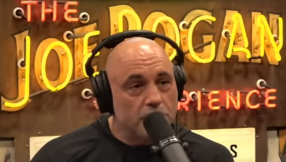Interview: Rev Jonathan Edwards, New Head of Baptist Union of Great Britain
|PIC1|The General Secretary is the highest representative of the Baptist Union in the UK, and Rev Edwards will take over in September from Rev Coffey, who is stepping down to fully focus on his position as the President of the Baptist World Alliance.
Christian Today was able to speak with Rev Edwards and hear some of his thoughts on his new calling from God.
CT: Tell us a little bit about your own background as a Baptist: were you always a Christian, were you always a Baptist?
JE: I was born into a committed Christian family. I was brought up in a Christian home with Baptist parents and from my earliest days I was being moulded by a very large loving Christian church in Essex. It is extraordinary to look back on it but in my teens I was attending church 6 times every Sunday. I was part of the Boys Brigade, we had Bible class at 10 o’clock, then at 11 o’clock we had the morning service, then I played the piano for the primary Sunday school at 3, we had a youth Bible study at 4:30 and then evening service and youth squash at 8. Isn’t that incredible? That has to have an effect doesn’t it? It was such a great place to be.
For me in terms of personal faith, the death of a friend of mine at 16 had a very profound impact that suddenly I recognised I had to do something about the faith I had learned about, and things started coming into focus.
|QUOTE|I went off to university to study law. I was studying at St John’s College Oxford with Tony Blair. I found it extremely interesting but realised I couldn’t give my life to the law. And so I became open to suggestions from people that I should investigate ministry, which I duly did and started training for ministry in 1976.
So I went back to Oxford and did three years of training for ministry and got an Oxford degree. When I came out of Oxford I was 23 and I felt that was too young to go straight into ministry and I felt I needed to open some more windows and see a bit more of the world. So I went to India with Church Mission Society, or Church Missionary Society as it was known back then, and had 2 years working in development and working with an outcast community.
In ‘83 I came to my first pastorate in this country on a new housing estate in Suffolk in Bury St Edmonds. I had 8 fantastic years there in a great church, a growing church, a very happy place to be, I married my wife while I was there. And then I did seven years as senior minister in a large Baptist church in Orpington in Kent and there I was called to be the General Superintendent of the South-West in 1998. I have been in the post, 8 years down in the South-West, having oversight of 100 churches and about 90 ministers.
CT: Did you ever imagine that you would one day become the General Secretary of the BUGB?
JE: Absolutely not. I neither desired it nor dreamed of it. I’ve always been happy doing what I’ve been doing. The thing I love to do more than anything else is be a local minister because I am fascinated by local churches and I’m very glad to serve. Actually in this church I have about 100 churches of which I have oversight, but I’m really stuck into the daily work of local churches which I love to do and everyday its about getting involved with their lives, and their problems, and their struggles and vision-forming. It’s an exciting life. So no, no plans.
|TOP|CT: Do you feel daunted at the prospect of taking on this role?
JE: For ten months I was put under huge pressure to let my name go forward, and I came up with every argument I could think of as to why I shouldn’t do it. Really we are very happy where we are as a family with kids, a young family. It would suit us well to stay where we are.
But in November the Lord spoke to me really powerfully and said you must be willing, and so I was willing. I tried to think of anyone I could think of that the committee should look at, hoping to deflect their interest. But I think, having fought it so hard, in January, after 6 hours of interview, they said we are convinced you are the man. So I said ‘fine, I’ve put up my fight’. So I think actually I don’t feel daunted, I feel peaceful, I feel excited, I will give it my best shot and, by the grace of God, will take the Baptist family forward.
CT: How do you feel taking over from David Coffey? You described him as courageous, confident and a winsome leader.
JE: Yes and here I am, what’s it all about? Yes, it’s an awesome thing to follow David because he has been an amazing leader and I have huge respect for him. But the only thing that matters in life, and I’m absolutely convinced of this, is that you know you’re called and if you know you’re called then everything else is minor. If I was writing the script I wouldn’t have written it this way, but God is writing the script and it seems to be that I seem called to do this work, and that’s fine.
CT: You said you like the local level church. Is there something from that you think you can bring to your new role, is that transferable at all?
JE: Well absolutely, because as a union of Baptist churches we are there to support the local church. It just happens that in this role I am there to support over 2000 churches, but the focus is always on the local church. That’s how we think. And so as we plan strategy, as I go around the country, as I meet with local churches, it’s about doing everything I can to support local churches. So the focus will change profoundly in many ways but I hope at the centre there will still be a focus on the local church.
CT: You described yourself at the Baptist Assembly in April as being passionate about prayer, passionate about Gospel, passionate about working in graceful partnership. Why do you think you were called to this position and how do you think these particular gifts are going to be used in your role?
JE: People clearly see me as a leader and somebody who can inspire and encourage. It’s always a mysterious thing isn’t it, why people do see stuff in you. I don’t bother to think about myself too much, it’s quite a boring subject! But these things are how I’m wired. As a Christian leader I know that we are as strong as our prayer life and no stronger, and if local churches are not cutting it in prayer they’ve missed it, they’ve blown it.
So prayer, I’m passionate about it, because there’s nothing left if we don’t, if we are not truly in our hearts committed to prayer. I’m committed to the Gospel because I just find it so exciting to see what God is doing in peoples’ lives, that it is transforming, that it is a power of God. I want to be part of a Baptist family that is looking outward. That’s what it’s about. We are not just celebrating our own salvation, but we’re seeking God to turn our world upside down. And the graceful partnership thing was a very deliberate phrase. We are called to be involved deeply with other people of all kinds in our society, yes certainly other denominations, but other belief groups as well. It’s for us to befriend, get alongside, so that we might be as effective as we can be as the people of God.
|AD|CT: What kind of preparations are you going to be making personally to prepare yourself for taking up the post?
JE: I am still senior regional minister down here until the end of July, so my focus is mainly on the South-West. But I think it’s a preparation of heart that is most important, and I think the Lord is doing that at the moment much through the letters I’m receiving. People have been very generous in speaking in huge quantities to me, and it’s been moving to hear and really listen to how they see my gifts might fit into the future life of the Baptist Union. So it’s a preparation of heart. The detailed stuff will happen drip by drip in the coming months. But as one of thirteen regional minister team leaders I am involved monthly, and have been for the last 8 years, involved in national conversations and those national conversations are not unfamiliar to me.
CT: You’re coming into this new role at an interesting time. Certainly in terms of the world in general it’s an interesting time. There are lots changes and lots of challenges. Looking specifically at the worldwide Baptist Church we had last year the Southern Baptists who left the BWA. Why do you think these cracks and divisions have come up in the worldwide Baptist family?
JE: Clearly there are different emphases within the Baptist family worldwide as you would expect, and those differences that shape opinions are the basis for family conversation. It is a matter of sadness that that has happened. I don’t think that is the last word on the subject. I know the Southern Baptists are having many conversations within themselves and that’s great, God bless them as they do that. But we are a family and people will make their own free decisions. But there is no doubt that on many of the issues there are differences, differences in style, differences in approach. We need to find and I believe we are finding effective ways of working those issues through, and the Baptist World Alliance is the most natural place to act as a forum for those conversations?
CT: So are you hopeful then these divisions can be reconciled in the love of Christ. Do you think God is opening up a new door?
JE: I am sure that’s so and I look forward to anything that would encourage.
CT: What about the circumstances facing Christianity in general at the time you are coming into this role. The Da Vinci Code debacle remains for one thing and there is a lot of emphasis on interfaith dialogue. What is your vision for the Baptist Union of Great Britain as you take up the role of new General Secretary?
JE: My vision is above everything else that we would be outward looking. Churches are famous for spending a huge amount of their energy turned inward. And I think we need to recognise deliberately, clearly that we are called by God to be involved to his mission to the world, and therefore organise our lives in such a way that we are turned outward.
Last year I led with my colleague a road show entitled ‘Turning your Church Inside Out’. And I think that sums up what I’m seeking to achieve. Churches so easily get so comfortable, so retrospective, and I’ve been a part of that, and I’ve probably contributed to that in some ways. But the calling at the end of the day, the test of the church is how outward looking we are, how able we are to engage with our society relevantly, graciously, boldly. So, yeah, this is an exciting time, there are many issues.
I think The Da Vinci Code conversation is fascinating! What a great book but can anybody take any of it seriously? That’s enough to make you gasp in itself isn’t it? But, hey, this is an opportunity, people are asking questions so let’s seize the day, let’s seize the month if people want to talk about these things. Yeah we’ve got a crazy novel on our hands. It’s a good story, I enjoyed reading it, but it’s claptrap, it’s not based on fact or firm research enough. But it is an opportunity for the Gospel and we must seize it.
In our relationship with other religions I am quite clear that we are called to seek to express the love of Christ to everybody, everybody, whatever their religion, whatever their outlook. Whether they love or hate us, we are called to express the love of Christ. So I hope that we would want to do everything we can, to speak with, dialogue with, share with, learn from the others who share these islands with us.
When I lived in India obviously I did that in a very normal sense because I was a Christian community in a largely Hindu society. I am sure we have much to learn from other religions, that as we work with them, as we spend time with them graciously, lovingly, so we will find the opportunities to share with them the love of Jesus. And that is our commission.













